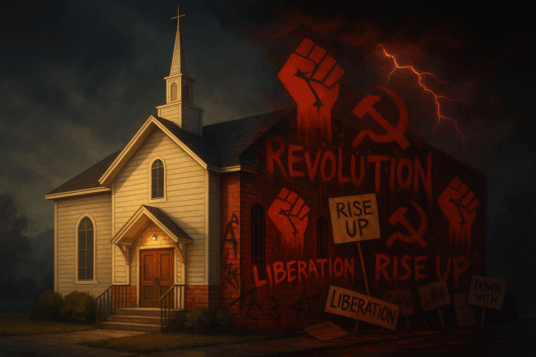In recent years, many churches and Christian institutions have embraced liberation theology without realizing what it truly is. And it is dangerous. It attempts to reshape Christianity through the lens of Marxist political struggle.
Origins: A Gospel Rewritten by Revolution
Liberation theology began in Latin America in the 1950s through the 1970s, with figures like Gustavo Gutiérrez, Leonardo Boff, and Jon Sobrino. It arose in a time of deep poverty, government corruption, and violent inequality. These conditions were real and tragic. From those conditions, they sought to re-read scripture in light of them. However, the solution these men offered was not a return to the gospel of Christ—it was the grafting of Marxist political theory onto Christian teaching.
At its heart, liberation theology is an attempt to reinterpret Christianity through the eyes of class struggle. They divided humanity into “oppressors” and “oppressed,” not by spiritual standing before God, but by economic and political power. It replaces the spiritual battle between good and evil with a worldly battle between the “marginalized” and the “privileged.” The solution, then, is not repentance but resistance. The goal is not reconciliation with God but the dismantling of unjust structures.
This movement quickly spread beyond Latin America, finding new forms in the United States, Europe, and Africa. But wherever it went, it brought the same confusion: blurring the line between the mission of the church and the goals of radical political change.
Theology Distorted: From Redemption to Revolution
In liberation theology, Christ is no longer primarily the Savior who redeems individuals from their sins but calls them to overthrow those they deem powerful. Jesus becomes a revolutionary figure, an organizer of the downtrodden, a symbol of socio-political insurrection. The Cross is reframed as an act of protest rather than a sacrifice for sin. The Resurrection is treated less as a historical victory over death and more as a metaphor for a new social order. Salvation comes not from being reconciled to God, but from freeing the poor and oppressed from political and economic injustice.
Under this view, God’s primary mission is to overturn worldly systems rather than to save sinners from eternal death. Preaching becomes political activism. Evangelism becomes community organizing. Discipleship becomes social agitation.
In short, liberation theology strips the gospel of its power to save souls and turns it into a tool for earthly revolution.
Liberation theology is not just a slight misinterpretation. It’s a political movement cloaked in religious language. Its roots are not in the teachings of Christ or the apostles. It is a modern invention, a hybrid born from political revolution and theological compromise. It is another gospel entirely.
When churches adopt it, knowingly or unknowingly, they do not return to the early church’s faithfulness; they trade the gospel of grace for a gospel of grievance.
The Apostle Paul warned of such distortions when he wrote to the Galatians:
“If anyone is preaching to you a gospel contrary to the one you received, let him be accursed.” (Galatians 1:9)
Modern Influence: Seeds of Political and Religious Change
Though liberation theology began in Latin America, its influence has spread far and wide.
Some scholars argue that the late Pope Francis—the first Latin American pope—has shown sympathy for aspects of liberation theology in his focus on economic inequality, especially in his encyclical Laudato Si’. His approach has caused concern and frustration among more traditional and conservative Catholics.
In the United States, Black Liberation Theology emerged, led by figures like James Cone and popularized by pastors such as Jeremiah Wright—who influenced figures such as former president Barack Obama. This variation applies liberation theology’s framework to racial inequality, presenting Jesus as a liberator of Black Americans from white oppression.
Elements of liberation theology also appear in mainline Protestant denominations like the United Methodist Church, the Presbyterian Church (USA), the Evangelical Lutheran Church in America (ELCA), and the United Church of Christ, particularly in their social justice ministries. And movements like the “Red Letter Christians” within evangelicalism also echo liberationist concerns.
In U.S. politics, you hear its echoes in leaders who promote systemic theories of injustice, framing entire classes or races as inherently guilty or virtuous. Many such leaders, despite holding power and wealth themselves, call for others at the top to be torn down. Liberation theology sanctifies the “oppressed” and demonizes the “privileged,” regardless of individual character or actions.
This is perhaps its most subtle danger: it spiritualizes resentment. It does not just politicize religion—it theologizes envy. It teaches that certain people, by race or income, can do no wrong, and others, by the same metrics, can do no right.
But Jesus did not speak this way. He did not declare the rich wicked or the poor righteous. He saw the human heart for what it is—fallen and in need of grace. There are generous and godly men among the wealthy, and selfish, cruel men among the poor. Scripture never divides humanity by class or race. It separates them by belief, obedience, and righteousness.
Liberation theology creates enemies that the Bible does not. It sows division where the Bible calls for unity. In its zeal to build a better world, it undermines the very truth that can truly change it.
